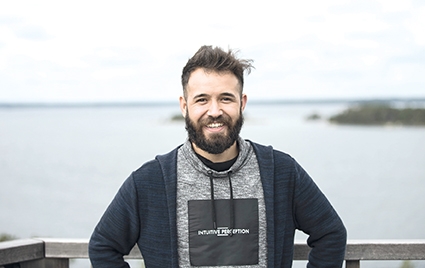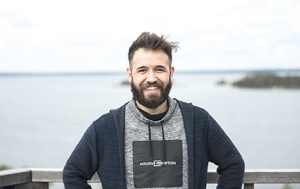Social Innovation Lab Entering Georgian Market - Keen for Local Partnerships
Mr Jasur Hasanov describes himself as “an impact entrepreneur, marketer, trained startup coach, and innovation consultant.” Behind these buzzwords, he has launched several businesses, including a handful of his own. Concretely, Hasanov is the CEO and founder of Social Innovation Lab (SIL), one of Azerbaijan’s leading entrepreneurship centers. After success in their home country, SIL is now making moves into Georgia. GEORGIA TODAY spoke with Hasanov to learn more about what they’re up to.
What inspired you to start SIL?
I went through startup accelerators like the Silicon Valley-based Cleantech Open and Singapore-based YSE Incubator with my startup a few years ago, where I gained a significant amount of knowhow and experience and networked in the entrepreneurship field. Observing the lack of structured entrepreneurship education and access to global opportunities [in Azerbaijan], I decided to establish SIL in Baku to help local entrepreneurs grow.
Tell us about some of the different programs you operate. Are you bringing them all to Georgia?
SIL currently runs the international ClimateLaunchpad and Creative Business Cup programs, as well as the region’s largest accelerator for early stage space startups – NewSpace Accelerator. We’re planning to bring the NewSpace and ClimateLaunchpad programs to Georgia initially, as well as our expertise in building and running innovation programs.
What made you decide to expand to Georgia? What are your thoughts on the startup/innovation marketplace here?
I have been to Georgia many times before to deliver sessions on Social Innovation and entrepreneurship and I’m familiar with the ecosystem – players like GITA, Impact Hub and other initiatives.
We decided to expand into the Georgian market firstly because we’ve seen a similar demand for entrepreneurship education in the market. At the same time, we see a lot of potential in the market with an increasing number of talents and opportunities, like the development of tourism and other industries in the country. These developments require innovations built on local context and knowhow.
What are the differences between the entrepreneurship community in Georgia and in Azerbaijan?
In terms of culture, development and the general mindset of people towards entrepreneurship, there are differences as much as similarities. Some of the advantages in Georgia include ease of doing business in the country and across borders, supportive infrastructure like the availability of payment systems (like PayPal and general banking systems), ease of general travel to Europe, etc. Considering these factors, Georgia is a promising geography to produce a number of unicorns [a privately held startup company valued at over $1 billion] in the coming years.
What are your long-term goals for SIL?
Initially, SIL was founded purely with my personal investment and until today we’ve been bootstrapping – as we have reinvested our profit into the growth of SIL for the past two and half years.
From being an accelerator, we’re growing into a VC [venture capital firm] to support our startups with initial funding / investment as needed. Our long-term goal with SIL is to become a leading impact investment group in the region with acceleration programs to produce new startups.
What are the biggest challenges you’ve faced in growing this business?
As Social Entrepreneurship and even entrepreneurship in general is a new topic in countries like Azerbaijan and Georgia, we’ve had difficulties in positioning our services in the market. In the past year and half, we have achieved remarkable traction in terms of sales and impact generation. Having the experience of growing SIL in Azerbaijan will for sure ease things for us when we enter the Georgian market.
Social entrepreneurship is a hot topic in Georgia right now – do you think every business should have a social component?
As an impact entrepreneur, founding SIL was not a coincidence but rather for the purpose of accelerating the growth of Social Enterprises or tech startups with a social or environmental impact. Therefore, we have always focused on supporting startups that have positive influence on society with sustainable and scalable business models.
To be frank, most businesses already do have a social impact with or without the intention of the founders. On the other hand, Social Entrepreneurship is does not mean integrating a social component into a traditional business, but rather it requires having a social or environmental problem as a core of the business itself. Being a social enterprise means producing a solution that directly aims to tackle a social or environmental issue.
What have been some of SIL’s biggest success stories?
Since the first day of our foundation, we have trained over 1400 entrepreneurs who have built about 110 startups and raised $300k+ in funding. Our alumni include professors, young professionals, university and even school students. As we position ourselves to be a “Path to the Global Startup Community,” 16 SIL alumni startups have joined nine international startup programs and one was featured in Forbes’ ‘30 Under 30’ list.
We value collaboration more than competition and therefore are open to collaborate with any individual or organizations from Georgia on boosting entrepreneurship in Georgia with our joint efforts.
For those who are interested, please visit our website at www.sil.vc and feel free to contact us at hi@sil.vc for collaboration.
Interview edited for clarity.
By Samantha Guthrie











